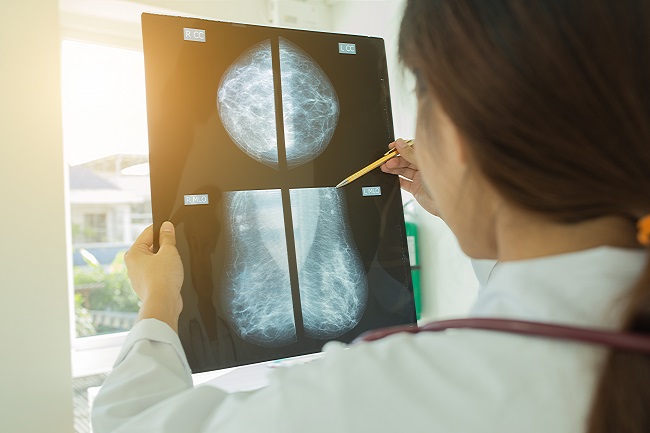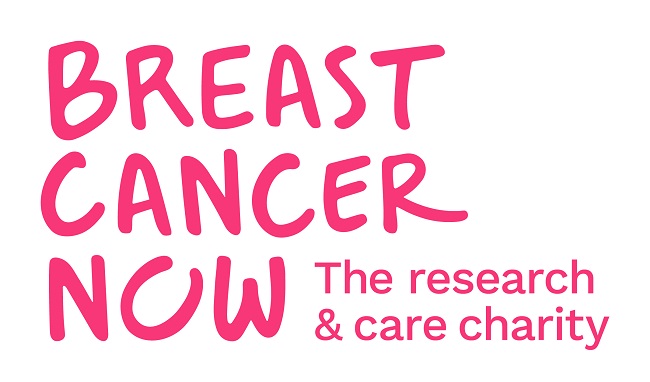Glasgow scientists working to develop new immunotherapy for breast cancer
Published: 20 January 2021
Researchers at the University of Glasgow are investigating how the immune system might be used to stop breast cancer from spreading and becoming incurable
As scientists across the globe are harnessing the power of immunotherapy to fight coronavirus, leading researchers at the University of Glasgow are investigating how the immune system might be used to stop breast cancer from spreading and becoming incurable.
While the pandemic is significantly impacting medical research, vital breast cancer research is continuing in Scotland under a team, led by Dr Seth Coffelt, which is investigating how the immune system, and a specific type of white blood cell, can help breast cancer to spread throughout the body, in a bid to find new ways to prevent the disease from becoming incurable.

The study, made possible by a grant from Breast Cancer Now and Secondary1st aims to understand how breast cancer tricks the immune system into helping it to grow and spread, which could eventually lead to the development of new immunotherapy treatments. This is a three year project, with the first two years already funded by breast cancer research charity Secondary 1st.
When breast cancer spreads to another part of the body (known as metastatic or secondary breast cancer) such as the bones, liver, lungs or brain, it can be controlled for some time, but currently cannot be cured. Around 1,000 people lose their lives to breast cancer every year in Scotland and secondary breast cancer is the cause of almost all of these deaths.
The immune system is the body’s major defence mechanism that seeks out and destroys foreign invaders, such as bacteria and viruses, to keep us healthy and ward off disease. In recent years, scientists have made significant breakthroughs in immunotherapy which involve reprogramming the immune system to recognise and destroy cancer cells.
New immunotherapies are already being used to treat patients with melanoma and kidney cancers, but the development of safe and effective immunotherapies for breast cancer has lagged behind.
Dr Seth Coffelt at the University of Glasgow has recently found that a type of white blood cell, called gamma delta T cells, can help breast cancer spread throughout the body by suppressing the immune system and preventing it from destroying cancer cells. He and his team believe that the breast cancer tumour may be turning these cells on, but it is not yet clear exactly how this happens.
Research over recent years has suggested that gamma delta T cells can play two roles in cancer – a cancer-supporting role and a role in protecting against cancer. The researchers hope that this project could help to identify how we can turn off the cancer-supporting function and turn on the anti-tumour function of gamma delta T cells.
Dr Coffelt’s team have also discovered that gamma delta T cells make large amounts of a molecule called NKG2D, and they are now investigating how NKG2D is turned on and what role it plays.
The researchers are studying how the behaviour of the immune system changes when breast cancer spreads to organs such as the lungs in mice. They are tracking where immune cells can be found, and whether stimulating NKG2D affects the spread of the disease.
It is hoped that this research could lead to the creation of new immunotherapies for breast cancer which can retrain gamma delta T cells and the body’s immune system to recognise and destroy cancer cells.

With the first wave of the pandemic having paused the NHS breast screening programme Breast Cancer Now estimated that around 8,600 women may have been living with undetected breast cancer, and the significant backlog of appointments is now combined with unprecedented pressures on the NHS from both the second wave and winter challenges. Research into developing new effective breast cancer treatments is therefore more important than ever as when breast cancer is diagnosed later it is harder to treat, and there is an increased risk of the disease spreading.
Dr Seth Coffelt, study lead at the University of Glasgow, said: “Nature designed gamma delta T cells to be flexible. These cells normally sense problems and alert other immune cells to danger; but breast tumours take advantage of this natural flexibility to support the spread of cancer.
“We know that breast cancer cells can communicate with gamma delta T cells and change their behaviour so that the immune system doesn’t react to cancer - understanding how cancer cells do this could open up new treatment options.
“We are very excited to receive this funding to study the interaction between breast tumours and gamma delta T cells as if we understand this our hope is that we can develop an immunotherapy that helps the immune system to recognise and get rid of cancer.”
Dr Kotryna Temcinaite, Research Communications Manager at Breast Cancer Now, which is funding the study, said: “Together with Secondary1st we are delighted to be funding this important and much-needed study into understanding how breast cancer tricks the immune system into helping it grow and spread. The coronavirus pandemic has had a huge impact on research across the country, but it is vital that we continue to do everything we can to support researchers to continue their vital work.
“Once breast cancer has spread it can be treated for some time but it can’t currently be cured. With around 1,000 people in Scotland still dying each year, we urgently need to find new ways to prevent the disease spreading and to treat it more effectively when it does.
“This research will help us to understand the molecular detail of how breast cancer can turn off the immune response, with the exciting prospect of developing new immunotherapy treatments that could turn it back on; a discovery that could stop breast cancer from spreading and ultimately reduce the number of deaths from this disease.
“Anyone concerned about the risk of their breast cancer returning or spreading can speak to our expert cancer nurses by calling our free Helpline on 0808 800 6000.”
Breast Cancer Now currently invests £2 million of funding across 12 breast cancer research projects in Scotland, all of which are working to discover how to prevent the disease, save more lives, and enable more women who have breast cancer to live well with it. To date, the charity has invested over £15 million in world-class breast cancer research in Scotland.
For more information on how Breast Cancer Now is supporting people affected by breast cancer through its support services during the pandemic, and providing hope for the future through research, please visit breastcancernow.org.
Enquiries: ali.howard@glasgow.ac.uk or elizabeth.mcmeekin@glasgow.ac.uk / 0141 330 6557 or 0141 330 4831
First published: 20 January 2021
<< January

